18 Best Doctor of Pharmacology Graduate Schools

Find your perfect college degree
Pharmacology isn’t the same as pharmacy, and it’s something that must be emphasized since their education, training, and career options are different, if complementary. On the one hand, pharmacology is a biomedical science that covers the study of drugs and their effects on humans and other living organisms. This multidisciplinary field draws from many sciences, from biochemistry, molecular and cellular biology, and biophysics to neuroscience and endocrinology.
Quick audio summary:

On the other hand, pharmacy as a healthcare profession involves the clinical applications of the drugs developed in pharmacology, including its best principles and practices. At the core of a pharmacist’s profession is the safe, effective, and efficient dispensation of prescription and over-the-counter medications.
Such a fundamental differentiation must also be made because pharmacologists cannot practice pharmacy in the United States! Individuals who have earned a Doctor of Pharmacology degree can neither take the North American Pharmacist Licensure Examination nor apply for a pharmacist license. But their career options are plentiful, and it’s something that works in their favor.
A Doctor of Pharmacology degree is a postgraduate program that provides advanced research and clinical training in the clinical science of drugs and their actions. This degree combines the traditional practice of pharmacy with advanced research-based learning, preparing students for careers in academia, regulatory agencies, healthcare systems, industry, and other fields related to pharmaceutical science and medicine.
In addition to preparing graduates for successful careers in the pharmaceutical industry, a Doctor of Pharmacology degree also provides students with an in-depth understanding of the basic principles of pharmacokinetics, pharmacology, and pharmacotherapeutics. This knowledge is essential for providing quality healthcare services and promoting safe and effective drug use. With the additional research and clinical training, graduates of this program are highly competitive in their field.
FREQUENTLY ASKED QUESTIONS
What are the roles and responsibilities of a Pharmacologist?
Every pharmacologist’s job differs depending on their chosen specialization and employer. Pharmacologists with pharmaceutical companies will likely be involved in the research and development of new drugs, including data analysis and clinical trials. Pharmacologists with the US Food and Drug Administration can evaluate the data regarding clinical trials submitted by pharmaceutical companies.
With that said, the general roles and responsibilities of pharmacologists include:
- Drug development and improvement of existing drugs
- Research the outcomes, including beneficial and adverse effects of drugs
- Plan and direct studies related to drugs and other aspects of pharmacology and toxicology
- Standardize the doses of drugs as part of treatment plans for different cohorts or users
- Prepare, write and present research studies
- Perform research on specific topics within pharmacology and toxicology
Pharmacologists may also be expert witnesses in court proceedings regarding the effects of drugs.
What’s the typical program of study for a Pharmacy degree?
Becoming a pharmacologist can take at least ten years of formal study since it requires a doctorate. But while pharmacologists have a doctorate, they aren’t usually considered doctors in the same way as professionals with a Doctor of Medicine (MD) or Doctor of Osteopathic Medicine (DO) degree. Instead, their doctorate is the Doctor of Philosophy (Ph.D.) degree, a research-intensive degree.
The typical path toward a Ph.D. in Pharmacology is as follows:
- Earn a four-year bachelor’s degree, preferably in a biological science like chemistry or biology, since it meets most of the prerequisite courses. Students learn the fundamentals of biology, chemistry, physics, physiology, math, and English composition, which are crucial for a Ph.D. in Pharmacology program.
- Become a laboratory assistant or an intern at a research facility, if possible, since it will develop your research-related skill sets. This can be done as an undergraduate and after earning a bachelor’s degree.
- Earn a master’s degree in pharmacology or a related field depending on your desired area of specialization at the doctorate and job levels. But some programs admit students with only a bachelor’s degree subject to terms and conditions. Many Ph.D. programs require candidates to possess both a bachelor’s degree and a master’s degree, while others may offer dual degree programs. The latter may be joint MD and Ph.D. programs, meaning students train to become medical doctors and pharmacologists.
- Earn a Ph.D. in Pharmacology from an accredited college or university. The typical curriculum includes didactic courses including core, major and elective courses and the dissertation and capstone project.
- Complete the residency or fellowship training requirements depending on the program’s completion requirements. Some community pharmacies participate in internships.
Due to the multiple educational pathways toward a career in pharmacology, interested individuals must consult with academic advisors or guidance counselors.
What are the important qualities of a Pharmacologist?
Like all professionals in the medical industry, pharmacy graduates must live up to high standards in their personal and professional lives. With so many lives at stake, their most important qualities include:
- Strong research skills since the professional lives of pharmacologists revolve around research, from gathering data to communicating the information.
- Effective communication skills because they work with a team and must also communicate with third parties.
- Efficient time management skills are a must since pharmacologists must juggle several tasks at once, sometimes multiple research projects, too.
- Proficiency in math and the sciences since pharmacology involves heavy use of these areas of study.
- English language proficiency, particularly in writing formal letters and research papers, is a must for obvious reasons.
Pharmacologists must also be patient, organized, and objective when involved in research projects.
What are the training and licensing requirements to practice as a Pharmacologist?
Aspiring pharmacologists must apply for the appropriate board certification with the American Board of Clinical Pharmacology (ABCP). There are two types, namely:
- Clinical Pharmacology certification is for licensed medical doctors (MD) only at the time of exam; (The examinee must present proof of completion of a Clinical Pharmacology Fellowship Training, too.)
- Applied Pharmacology certification is for applicants with an MD, PharmD, RPh, or Ph.D. at the time of the exam.
The certification exams are offered from July to August. The ABCP has been the official accreditation and certification body for both applied and clinical pharmacology programs since 1991.
Earning a certification in a pharmacology specialty is also highly recommended since it demonstrates expertise in and commitment to the profession.
What makes the Doctor in Pharmacology degree worth the extensive commitment?
If there’s a silver lining to this current crisis, it must be the spotlight in which the pharmacology industry has found itself! The COVID-19 pandemic has emphasized its importance in addressing the myriad of diseases and disorders that humanity faces. The speed with which the pharmacology industry provided solutions for the coronavirus crisis has been praised, too.
For aspiring and current pharmacologists, now is the time to shine! Other reasons for pursuing the pharmacology path include the expansion from conventional drugs to innovative therapeutic programs. Think of gene therapeutics and engineering, protein-based and cell-based therapies, and fast-acting vaccines.
Indeed, pharmacologists and pharmaceutical scientists are being recognized for their profound impact on how we live as individuals and as a society!
There’s also the fact that a Ph.D. in Pharmacology will open up careers in pharmacology, toxicology, and medical research in a wide range of settings. Hospitals, clinics, pharmaceutical corporations, government agencies, colleges and universities, and non-profit organizations are just a few examples of workplaces.
Pharmacologists are also among the highest-paid scientists in the United States! Their median annual pay is $91,510 per year (BLS, May 2020) when classified as medical scientists. PayScale reports that pharmacologists earn $98,141 per year, on average. The job growth is also a come-on at 17% (2020-2030), a much faster than average rate, meaning there are plenty of current and future job opportunities.
Can the field of Pharmacology be dangerous?
Yes, the field of pharmacology can be dangerous. Working with drugs and chemicals can be hazardous, and it’s important for pharmacologists to take proper safety precautions at all times. Additionally, pharmacologists must be aware of any new medicines or treatments and study their effects on people.
METHODOLOGY
The Doctor of Pharmacology or related sciences programs featured here were selected based on their:
- Valid accreditation for the entire university and its Ph.D. program
- Selective admission process that considers numerous qualitative and quantitative factors (GPA, GRE, letters of recommendation, personal statement, and resume)
- Reputation for academic excellence and rigor combined with exceptional research and fellowship opportunities
- Faculty members with terminal degrees, outstanding work experiences, and published research studies
- Exceptional student support services, including academic support and financial aid
20 BEST DOCTOR OF PHARMACOLOGY GRADUATE SCHOOLS
University of North Carolina – Chapel Hill

Chapel Hill, North Carolina
UNC’s main goal in its Ph.D. in Pharmacology program is the development of outstanding pharmacological scientists. Toward this end, students are provided with full participation and support from faculty mentors, high levels of NIH funding, and excellent physical facilities. Students are encouraged to study the diverse research areas in pharmacology, from cell surface receptors to behavioral pharmacology.
- The individualized curriculum allows each student to personalize their program of study based on their background, interest, and goals. The diverse research areas complement the individualization, too, as students can focus their research on sub-specialties of receptors and signal transduction, gene therapy, and other topics.
- Students are expected to get an early start on their independent research projects and be active participants in research seminars. Close communication with their respective preceptor is also strongly encouraged to produce the best possible research.
- All students receive generous financial assistance, including tuition and health coverage, as well as a stipend.
- The curriculum covers topics in introductory and advanced pharmacology, toxicology, and other related subjects.
- Students are admitted into the Ph.D. program via the Biological and Biomedical Sciences Program and the Medical School. First-year Ph.D. students must complete their academic coursework and a three-part series of laboratory rotations.
- Students must also identify their research mentor, propose a dissertation topic, and select members of their dissertation committee before starting their dissertation. There are qualifying and oral examinations, too, during the five-year graduate program.
- The application packet must contain the non-refundable application fee, transcripts, letters of recommendation, personal statement, and GRE scores less than five years old.
Standout Features:
UNC is among the best universities for a Ph.D. in Pharmacology because of its robust support for basic and applied research in the pharmacological sciences. The state-of-the-art facilities house cutting-edge equipment, and the award-winning faculty members have a hands-on approach to mentoring student-researchers. UNC has several research centers, including the Genetic Medicine Building, Thurston Bowles Alcohol Center, and Lineberger Comprehensive Cancer Center.
When the 9/11 attacks on the World Trade Center happened, the undergraduate class of 2005 were in their freshman year. Their graduation class gift commemorated the victims who were UNC alumni through a memorial garden.
Boston University

Boston, Massachusetts
The Ph.D. in Pharmacology program has produced many of the country’s leading pharmacologists! In 1997, the Biomolecular Pharmacology Program was recognized with the prestigious T32 Instructional Training Grant by the National Institute of General Medical Sciences. But BU School of Medicine doesn’t rest on its laurels either, and it has continued its system-wide initiatives to provide doctoral students with a conducive environment for education and research.
- This is a full-time program with a five-year expected completion rate. Students are trained to become experts in basic research in pharmacological sciences through a combination of core courses, laboratory rotations, and dissertation research. The program emphasizes molecular pharmacology, with graduates expected to contribute to its development.
- Students spend their last three years focused on their dissertation research, including writing the body, reporting its progress, and making a final presentation.
- Most students enter the PhD program via the Department of Pharmacology, while others do so through the Graduate Program in Neuroscience and Biomedical Engineering.
- Students complete 64 credit hours along with passing the qualifying exam and oral dissertation defense for graduation purposes. Each student can individualize their program of study, but it must consult with the Graduate Education Committee and faculty advisor.
- A minimum of 18 credit hours in core courses must be completed. These include Foundations in Biomedical Science; Molecular and Translational Pharmacology; Current Topics in Pharmacological Sciences; and Laboratory Techniques in Modern Pharmacology.
- Students must also complete three advanced electives, such as Behavioral Pharmacology, Introduction to Biostatistics, and Cognitive Neuroscience. At least two seminar courses are required, such as in Current Topics in Pharmacological Sciences or Biophysics Seminar.
- The summer terms are for research activities. Students are encouraged to start their laboratory rotations in July before their coursework begins.
Standout Features:
Students will likely enjoy better academic and research success by participating in the interdepartmental Biomolecular Pharmacology predoctoral training program. The formal training covers interdisciplinary topics in molecular pharmacology, drug-receptor interactions, and neurobiology.
The Castle houses the BU Pub, the only pub operated by Boston University, and it’s where students, faculty, and staff relax and mingle.
University of Michigan – Ann Arbor
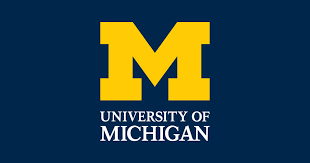
Ann Arbor, Michigan
UMich is a preeminent public research university that, in the fiscal year 2020, reported $1.62 billion in research volume and made significant advancements in several areas. These include the COVID-19 pandemic, carbon neutrality and driverless vehicle technology, even social justice. Indeed, the first pharmacology department in the United States continues to embrace its service vision through scholarship and research!
- Students in its Ph.D. in Pharmacology program enter through the Biomedical Sciences (PIBS) program, an interdisciplinary gateway platform. Applicants apply to PUBS via the Rackham Graduate School application, where primary and secondary program preferences must be indicated.
- Note the application deadline – December 1 – followed by interviews between late January and early February. The rotations start based on your preference – either July 1 or September 1.
- While the pharmacology program doesn’t have a minimum GPA, admitted students have a 3.5 GPA on average. There’s no GRE required either.
- Applicants, however, must submit a personal statement, a statement of purpose, and a copy of transcripts of all schools attended.
- The average completion time is 5.2 years.
- Students are offered a funding guarantee from matriculation until program completion. The funding covers tuition and fees, living stipend, and health insurance, even a moving stipend.
- First-year students must complete the core pharmacology courses, participate in laboratory rotations, and start their research on a full-time basis. Attendance in the weekly student seminars and other seminars is also required.
- Second-year students must be part of a thesis lab and give their first student seminar, pass the preliminary exam, and achieve doctoral candidacy.
- Third-year students must have completed the required didactic coursework and focus on their dissertation. Being a teaching assistant is also part of the experience.
Standout Features:
Every student must have an Individual Development Plan by the start of their second year. Many students become part of the university’s T32 training grants, such as the Human Genetics Training Grant and the Pharmacological Sciences Training Program (PSTP). Fellowships are also possible for senior students after completion of their F31 proposal.
“Defend the Diag!” is the battle cry of members of the Theta Xi fraternity as they protect Umich’s quad from possible vandalism by Michigan State students before the annual football game.
University of Pennsylvania

Philadelphia, Pennsylvania
Research is in UPenn’s DNA, and it shows in its long list of achievements and its $1 billion+ annual research funding! Its research-centric journal, aptly titled Research at Penn, showcases groundbreaking research from its 12 schools. Most notable in 2021 are mRNA technology, uterine transplant, and sustainable farms of the future. As a Ph.D. in Pharmacology student, you will also have the opportunity to contribute to scientific advancements!
- The Biomedical Graduate Studies (BGS) coordinates all applications to UPenn’s graduate programs, specifically the PhD in biomedical sciences. The application process starts in October for the subsequent academic year. Only electronic applications are accepted.
- No GRE scores are required.
- Applicants must have a bachelor’s degree in natural or physical sciences or sufficient background in these sciences. Official transcripts as proof of earning the bachelor’s degree must be provided to the BGS.
- Three letters of recommendation are required for consideration. These letters must provide information for the admissions panel to evaluate a candidate for their academic record and intellectual ability, extracurricular achievements, and work habits are required.
- Students with satisfactory academic progress will receive funding until completion of their Ph.D. requirements. The funding covers tuition and fees, a 12-month stipend, and health insurance. The yearly stipend varies every year, but for 2019-2020, eligible students received $34,000 in total.
- UPenn encourages graduate students to apply for fellowships from NIH, NSF, PhRMA, and the Ford Foundation, among others.
- The required core coursework includes Cell Biology, Medical Pharmacology, and Data Analysis for Life Sciences. Students must also pass the candidacy exam, participate in laboratory rotation, and complete their dissertation to earn the PhD degree.
Standout Features:
UPenn’s Ph.D. training program has funding support from the NIGMS Predoctoral Training Grant in Pharmacology. Students are provided with intensive knowledge and skills in basic biomedical science and pharmacology. There are also training sessions in genome science and bioinformatics.
After the third quarter in a Quaker football game, students, alumni, and supporters will throw toast – as in toasted bread – and sing “Drink a Highball.”
Rutgers, The State University of New Jersey

Piscataway, New Jersey
Rutgers knows where its priorities lie, and it’s in supporting its core missions, including academic instruction and research! Students in its PharmD/Ph.D. program can rely on Rutgers’ ample support for their academic studies and research activities. The Joint Graduate Program in Toxicology (JGPT) designed the dual degree program’s curriculum.
- Students enter the PharmD/PhD program during their third year in the PharmD program administered by the Ernest Mario School of Pharmacy. Students are admitted via one of three entry points – the JGPT, the Graduate Program in Pharmaceutical Sciences, or the Graduate Program in Medicinal Chemistry.
- PharmD students must first complete their two-year pre-pharmacy coursework, designated as PP1 and PP2, and then enter the professional PharmD program in their third year at Rutgers. The four-year PharmD professional program, designated as P1-P4, is the entry point to the dual degree program.
- Students are admitted to the dual degree program at the end of their P2 year. At this time, each admitted student has earned about 144 credits – about 69 credits in the PP1-PP2 program and 75 credits in the P1-P2 program.
- There’s a special curriculum consisting of two electives and a professional elective for students interested in research.
- PharmD/PhD students must complete their research rotations and earn ten additional credits during their P4 year. At the end of their P4 year, they will graduate along with their PharmD classmates. But they will remain in the PhD program for another three years or so until completing the required coursework.
- Students earn both the PharmD and PhD degrees in about nine years.
Standout Features:
The PharmD/Ph.D. program courses can be transferred to other programs, too, in case you want to transfer! Students are provided with broad research training in toxicology, molecular biology, pathology, and drug metabolism.
The Scarlet was the former name Rutgers’ athletes were called, referencing the university color. The Scarlet Knight isn’t the university’s original mascot – it was Chanticleer, a fighting rooster inspired by the Reynard the Fox medieval fable. But the fighting rooster became associated with “being chicken” and was replaced by the Scarlet Knight.
Columbia University
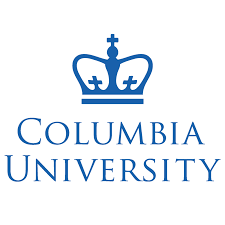
New York, New York
Columbia is among the country’s highest-ranking research universities, with NIH research grants of more than $667 million in 2020! Suffice it to say that its graduate programs, including the Ph.D. in Pharmacology program, enable students to pursue their research interests!
- The highly selective program only admits between 20 and 25 students. The small class size means a more personalized mentorship relationship between students and their faculty mentors.
- Students can earn the degree in 5.7 years with a minimum of 12 credits every semester and completion of requirements within the recommended time frame.
- Eligible students can receive up to $41,928 in yearly stipend (2021).
- First-year students take core courses and participate in laboratory rotations were becoming familiar with research environments is part of the experience. Students also identify their respective mentors at this stage. Each of the three laboratory rotations lasts for 3-4 months each.
- Second-year students start working on their thesis research while also balancing additional coursework based on their research interests. Passing the qualifying exam, which consists of a written thesis proposal and its oral defense, is required for consideration as a PhD candidate.
- Third-year students should have completed their didactic coursework, thus, allowing them to focus their full attention on their thesis research. Choosing a thesis committee and meeting with them at least once every 6-9 months also happen.
- Fourth-year students continue with their dissertation research, including its presentation and oral defense. Revisions and additional experimentations may be required.
Standout Features:
The Ph.D. in Pharmacology program has a ladderized curriculum, meaning students can earn a degree as they progress through the program’s milestones. Students who have completed two years have been conferred a master of arts degree. After passing the qualifying exam and getting approval for the thesis proposal, the MPhil degree is conferred. The Ph.D. degree is conferred after the successful defense of a dissertation.
Columbia University is among the largest landowners in New York City in parcels of land and buildings owned – more than 246 sites as of the last count. There are also a few National Historic Landmarks too, such as the Low and Pupin.
University of California Los Angeles
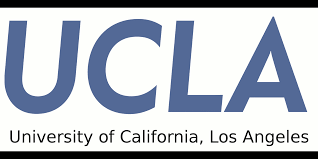
Los Angeles, California
UCLA consistently tops its previous-year research funding support with its 2019-2020 funding reaching $1.427 billion, a 38% increase since 2015. The Department of Molecular & Medical Pharmacology (DMMP) offers the Ph.D. in Pharmacology program among its notable funding recipients. Faculty members and students are offered research opportunities that integrate pharmacology with other sciences, including medical, physical, and biological sciences. The goals include innovations in molecular therapeutics as well as new in vivo and in vitro molecular diagnostics.
- Applicants must have a bachelor’s degree in physical or life sciences or engineering.
- Required materials for online submission include a completed application, statement of purpose, personal history statement, resume, and at least three letters of recommendation. Unofficial transcripts, fellowship applications, and application fees must also be included in the packet.
- Students must complete the didactic coursework and laboratory rotations as part of the program requirements. The courses include Introduction to Laboratory Research, Research Topics in Pharmacology, Integration of the Biology of Disease, Molecular Diagnostics, and Therapeutics.
- Students must also attend pharmacology seminars to present and discuss their respective research projects to a diverse audience. First- and second-year students must attend these seminars, while third-year students and above may present only once a year.
- Students must also complete teaching assistant requirements, usually for one quarter and by the end of their third year. (MSTP students aren’t required to complete a teaching assistantship)
Standout Features:
Students have numerous opportunities for research in state-of-the-art centers like the Ahmanson Translational Imaging Division and the Crump Institute for Molecular Imaging. DMMP also has close ties with start-ups and biotechnology companies where students can participate in laboratory rotations. Students may also become Graduate Student Representatives and, thus, develop their leadership skills.
UCLA is proud of its sports activities and teams. It’s the first university in the US to achieve 100 championships. The July 2019 record of 129 national championships is second only to Stanford University. And don’t forget that UCLA has the best college food in the entire country!
Yale University
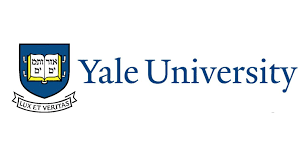
New Haven, Connecticut
Yale, an R1 research university and member of the AAU, has a campus dedicated solely for research – the 136-acre former Bayer Healthcare campus – along with its numerous graduate and professional schools. Among the most active, research-wise, is its Department of Pharmacology that offers a highly selective Ph.D. in Pharmacology program. This is, in turn, part of the Program in Biological and Biomedical Sciences (BBS), which offers interdisciplinary and integrated graduate study opportunities.
- Students in the BBS program enjoy the flexibility of choosing from several Tracks, working on research with Yale’s 200+ faculty members in the biological sciences, and taking full advantage of scientific interactions.
- About 70-80 students are admitted into the BBS program every year, and these students are divided into small groups based on their interest areas.
- Students in their first and second years choose from a wide range of basic and clinical courses for their didactic coursework. Three laboratory rotations must be completed in their first year, usually with their selected faculty members. Students must also choose their thesis advisor by the end of their first year. The qualifying exam occurs in the second year and must be passed before formal admission into the Ph.D. program can be made.
- Students may earn the degree between five and six years, on average.
- The degree requirements include passing five courses with a High Pass average, completing two semesters of teaching assistantship, and passing the oral dissertation defense.
- Financial assistance is available for all admitted students. The coverage includes full tuition and a 12-month stipend. But students aren’t allowed to have external employment during their Ph.D. studies.
Standout Features:
Every student has a customized curriculum based on their unique background, personal interests, and career goals. But there are mandatory program requirements, too, such as the laboratory rotations and teaching assistantships. Students train in the diverse areas of pharmacology, from cell and molecular biology to pathology.
Milton C. Winternitz created the Yale System in its medical school, and it emphasizes critical thinking among students in a non-competitive environment. This means students aren’t graded, but the Yale School of Medicine is among the most selective.
The Ohio State University
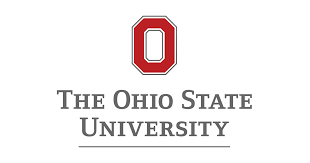
Columbus, Ohio
PhD in Pharmaceutical Sciences
Ohio State prides itself on the excellence and extent of its research programs, resulting in its status as a leader in change and innovation. And it has the financial resources, too, with $968.3 million in R&D expenditures in 2020! Suffice it to say that students in its world-class Ph.D. in Pharmaceutical Sciences program have all the necessary resources to make discoveries.
- Applicants must have a bachelor’s degree in the sciences, such as pharmacy, chemistry or biochemistry, biology, or engineering. Note that the majority of admitted students have a master’s degree in the sciences, too.
- Students must complete a series of mandatory courses to earn the degree. Examples include Fundamentals of Drug Disposition Biostatistics, Pharmaceutical Sciences Research and Communication, and Research Ethics.
- Pre-candidacy students must take the Journal Club course. Post-candidacy students have the option of enrolling in the course as an elective.
- Students must also attend seminar and presentation classes. The participation requirement for each course varies.
- At least three electives must be completed with the academic advisor’s approval to ensure that these courses are aligned with the student’s research area.
- Full-time Graduate Research Associates and Graduate Teaching Assistants must enroll in courses totaling 8-17 credits per semester before taking the candidacy exam. Graduate Fellows must enroll in courses amounting to 12-18 credits per semester. All full-time students must enroll in courses with three credits per semester after the candidacy exam.
- Students must demonstrate satisfactory progress on their research with evidence like written reports, publication of abstracts, and presentation of papers.
- OSU expects PhD students to complete the program requirements in 15 semesters.
Standout Features:
Students thrive in the program’s flexible programming, wherein there are only a few mandatory courses and a wide range of electives. Faculty advisors allow students to choose their focus areas for research and then tailor their electives and dissertation based on their choice.
OSU is exceptional for being one of the few universities with a land, sea, and space grant! Not only is it the home of geniuses – it’s the country’s #1 producer of Fulbright Scholars, among other distinctions – but it’s also a happy place to be!
Vanderbilt University

Nashville, Tennessee
Vandy has made several breakthrough discoveries and innovations, such as the powered exoskeleton and Tennessine, that it’s considered a preeminent research university. Its Department of Pharmacology offers an outstanding Ph.D. in Pharmacology program where nearly 60 students – or scientists-in-training – are involved in many research projects. The most notable as in drug metabolism, receptor signaling, and neuroscience.
- The highly selective program only has 38 current students with nearly equal gender distribution. The student body consists of MSTP, master’s degree, URM, and PharmD students, too.
- Students complete the degree requirements in 5.3 years (i.e., seven-year average) but actual completion time varies depending on research progress.
- The graduation rate is at an impressive 85.3% over seven years.
- Applicants to the Ph.D. program must first complete their first-year requirements in the Biological Sciences’ Interdisciplinary Graduate Program (IGP). This is because the Pharmacological Sciences Training Program (PSTP) is an IGP participant. But there are also a few applicants entering PTSP via the Medical Scientist Training Program (MSTP) and Chemical and Physical Biology (CPB) Program.
- Despite the difference in their point of entry, all Ph.D. students thrive under a common pharmacology framework. The mandatory degree requirements, including the didactic coursework, laboratory rotations, and dissertation, are the same.
- First-year students complete interdisciplinary core courses, including basic principles of laboratory research. Flexible research rotations, elective coursework, and foundational work for research also occur during the first year.
- Second-year students and above engage in nearly full-time laboratory research, take the qualifying exams, and complete their dissertation for graduation purposes.
Standout Features:
Students participate in research and scholarly activities and engage in a wide range of professional development activities. These include department and works-in-progress seminars, participation in the Graduate Student Journal Club, and attendance in lectures delivered by distinguished professionals. Informal lunches with the faculty are even encouraged!
Vandy houses Middle Tennessee’s only Level 1 trauma center and the only cancer center researching pediatric and adult cancers. Such is its cancer research-centric focus that it’s a member of the National Comprehensive Cancer Network.
Emory University
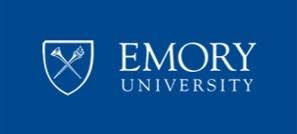
Atlanta, Georgia
Emory’s excellent track record in research spills over to its graduate students in its Ph.D. in Pharmacology program. In 2021, the university received $894 million for research into COVID-19, and we can safely surmise that pharmacology is covered. Emory takes pride in its world-class Molecular and Systems Pharmacology (MSP) graduate program, where future leaders are made.
- First-year students are involved in laboratory rotations while also making satisfactory progress on their didactic coursework. The latter includes the fundamentals of pharmacology and toxicology, cell biology, and biochemistry. The laboratory rotations provide students with crucial exposure to basic research.
- Students engage in research in many of Emory’s dedicated research centers. The Winship Cancer Center focuses on cancer pharmacology research, while the Yerkes Primate Research Center specializes in neuropharmacology, neurodegeneration, and addiction research.
- There’s a toxicology specialization, too, which students can choose aside from the pharmacology specialization.
- Applicants must preferably have a bachelor’s degree in the biological, physical, or behavioral sciences due to the strong focus on these sciences. The minimum cumulative average for major science courses must be a B+.
- Candidates must demonstrate a keen interest and high motivation for a scientific career, particularly in biomedical or biological research. This can be demonstrated through letters of recommendation and a statement of purpose.
- Transcripts are required, but GRE scores aren’t – there’s no field in the online application for it either. GPA must be in the high spectrum, with the average GPA being 3.5 for incoming classes.
- Prior research experience is a high priority consideration and, thus, recommended.
- The average program completion time is six years.
- All admitted students receive financial assistance, including tuition scholarship, a competitive stipend ($32,569 for 2020-2021), and health insurance.
- Teaching assistantships are required.
Standout Features:
The MSP Program’s particular strengths are cancer biology, neuropharmacology, cardiovascular pharmacology, chemical biology, AIDS research, and toxicology. No wonder it’s ranked #1 by The Scientist based on its impactful research in pharmacology and toxicology!
Emory has a macabre streak with its guardian of the school spirit and unofficial mascot being Dooley, a skeleton. But it has its creative side, with Emory ranked the best university for writers, thanks to its excellent writing programs.
Cornell University

New York, New York
Cornell’s mission of teaching and contributing to all fields of knowledge is alive and well in its Ph.D. in Pharmacology program! Students are encouraged to dig deeper into every aspect of pharmacological sciences and, in so doing, make impactful contributions to the field. With Cornell’s $1.19 billion in total research funding – #1 in the State of New York – there’s plenty of research opportunities for graduate students, too.
- Applicants must have a bachelor’s degree, preferably in the natural and health sciences, to be considered for admission.
- GRE scores in the verbal, analytical, and quantitative parts and the Biology or Chemistry advanced tests are optional. But these may be included in your application packet if these improve your chances.
- Recruitment days for applicants with high potential for acceptance are conducted in February. The two-day series consists of program orientation, meet-and-greet opportunities, and personal interviews.
- Students participate in the annual spring retreat, where informal scientific talks and other productive activities are enjoyed with fellows and faculty.
- Students must pass the Admission-to-Candidacy exam before their formal admission into the PhD program. The exam is designed to determine students’ depth and breadth of knowledge and, thus, their readiness for full-time dissertation work.
- There’s a series of three laboratory rotations in different settings that students must complete. Each rotation lasts between seven and ten weeks. These rotations are designed to familiarize students with laboratory work and allow faculty to assess their capacity and interest in it.
- The thesis research can be completed between years four and six in the program.
Standout Features:
Ph.D. students and faculty members in the Pharmacology Program focus their research on treatments and therapies for several diseases and, thus, make significant contributions to medicine. Many faculty members are associated with the Memorial Sloan-Kettering Cancer Institute and Weill Cornell Medical College. Students can then perform research on diseases like cancer, diabetes, and Alzheimer’s disease.
Cornell’s main campus stretches for 745 acres, but its total campus area covers thousands of acres! The 4,300-acre Cornell Plantations with its forest and garden belongs to the private Ivy League university.
Icahn School of Medicine at Mount Sinai

New York, New York
PhD in Biomedical Sciences Pharmacology and Therapeutics Discovery Concentration
ISMMS, a private medical school, is Mount Sinai Health System’s academic teaching arm and offers the outstanding Ph.D. in Biomedical Sciences with a Pharmacology and Therapeutics Discovery Concentration. Students are provided with state-of-the-art training, tools, and technologies necessary for their career success in the future. The Graduate School of Biomedical Sciences, which administers the program, allows students to choose their multidisciplinary training area, preceptor, and curriculum.
- Students choose from several core courses that will comprise their personalized curriculum as early as their first year. There should be one curriculum in the fall term and two in the spring term, minimum.
- Students also choose from several advanced electives in their second and third years.
- The courses include Systems Biomedicine, Biomedical Science, Biostatistics, Systems Biology: Biomedical Modeling, Molecular and Systems Pharmacology, and Introduction to Structural Biology & Molecular Biophysics. There’s also a Computer-Aided Drug Design course.
- Students must also enroll in PST or SCB Seminars, participate in laboratory rotations, and join the Journal Club.
- Independent research is at the heart of the Ph.D. program, and, thus, students must complete a thesis project according to rigorous standards.
- Students have plenty of laboratories to choose from for their laboratory rotations and thesis projects. The Aggarwal Lab, Akar Laboratory, Akbarian Laboratory, and Azeloglu Laboratory, each with its specific research focus, are examples.
- Every applicant is considered based on a holistic evaluation of their academic performance and potential, science background, and research experience. The latter can be in the academic sector or an industrial setting with a preference for life, engineering, and physical sciences.
- The application packet must include a completed online application, official transcripts, and contact information of those whose letters of recommendation will support your application. There’s an application fee, too.
Standout Features:
The Ph.D. program provides state-of-the-art technology for its students during their research and, thus, ensures that their research projects are up to standard. These include NMR spectroscopy, chemical synthesis, bioinformatics, and next-generation sequencing, among other rational methods for drug discovery.
ISMMS is among the top research recipients of the NIH, with over $400 million funding in 2021! Medical students learn the medical sciences in their first two years – and it’s a pass/fail system – and then the clinical sciences in their last two years.
Johns Hopkins University
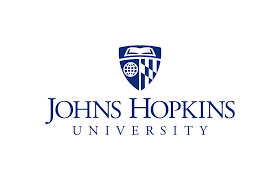
Baltimore, MD
Offered by the Department of Pharmacology and Molecular Sciences, the Ph.D. in Pharmacology degree provides a wide range of training opportunities in biomedical sciences. Students tackle immunology, chemical biology, neuroscience, virology, and cancer to discover new treatments and therapies. The sheer number of specific research areas available for study makes JHU the best in our book!
- Applicants must have a bachelor’s degree with a major in either physical or biological sciences. A strong background in chemistry, physics, calculus, and biochemistry is a must for academic success.
- Undergraduate transcripts, three letters of recommendation, and a statement of interest are part of the application packet and must be submitted to the Department by December 8.
- Each student can personalize their program of study based on their interests and goals, but there are compulsory courses. These include Molecular Biology and Genomics, Organ Physiology, and Graduate Pharmacology I & II.
- Students must also take writing-intensive courses, such as Primary Source Readings and Analysis and Essential Grantsmanship: Writing the Research Proposal.
- There’s a series of 10-week research rotations during the first year and a qualifying exam in the second year. The latter will test the depth and breadth of knowledge each student possesses.
Standout Features:
Students in the MD program may also enroll in the Ph.D. program and earn both degrees. Opportunities to earn a dual degree are also offered to students enrolled in programs where pharmacology faculty participate. These include programs in cellular and molecular biology, biochemistry, pathobiology, immunology, and neuroscience.
JHU is an old hand at advanced research since it’s the first research university in the country! There’s a history of firsts here! In 1985, the Peabody Institute, the country’s first music academy, became part of JHU.
University of Colorado

Aurora, Colorado
UC Boulder’s Graduate Program in Pharmacology has a 43-year track record of excellence, and it’s among the longest-running programs of its kind. Plus, it’s one of the best NIH-sponsored training programs with a research focus on cancer biology, neuroscience, and signal transduction.
- First-year students participate in a three-part series of 10-week laboratory rotations. Each rotation allows students to test their hypotheses for their dissertations and familiarize themselves with diverse laboratory techniques. The culminating experience after every rotation is a seminar presentation.
- Students also choose their advisors from more than 40 training faculty members with research interests in the diverse sub-disciplines of pharmacology.
- First-year students must also join seminars and journal clubs that will improve their research and public speaking skills and widen their network. There are shared seminars with other departments and programs, too.
- Competitive candidates have a bachelor’s degree or a strong undergraduate background in chemistry, biochemistry, molecular biology, calculus, and physics.
- Applicants must upload two essays, a research statement and a personal statement. These documents must describe your past work, including teaching, research, other employment, scholarly activities, and motivation to apply to the program. Applicants are evaluated based on their statements, thus, their importance.
- At least four letters of recommendation are required.
- GRE scores are optional but can be submitted if you believe that these will improve your chances of admission.
- Students tackle a common core curriculum but tailor their PhD experience through electives and individual research projects.
- Admitted students receive full tuition support as well as a yearly stipend and medical and dental insurance. The financial support, however, depends on the student’s satisfactory standing in academics and research.
Standout Features:
The program’s underlying philosophy is the emphasis on state-of-the-art research technologies and techniques in all training stages. Only candidates with exceptional academic and training credentials are considered for admission.
CU has 19 alumni who have made their mark as astronauts. Talk about reaching for the stars! There’s even a teaching astronaut at the Boulder campus.
University of Washington
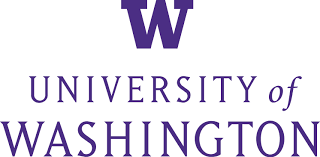
Seattle, Washington
UW’s Ph.D. in Pharmacology program is open to graduate students and students enrolled in the university’s medical, nursing, dental, and pharmacy programs. Offered by the Department of Pharmacology, the research-intensive program explores the myriad aspects of pharmacological sciences with an interdisciplinary approach.
- Applicants with a bachelor’s degree with a major in chemistry, pharmacy, biochemistry, physiology, or other sciences may enjoy preferential treatment. But the holistic selection process means that applicants from diverse academic and professional backgrounds will be considered based on several factors. Academic performance and potential, previous research experience, and letters of recommendation are the primary considerations. (GRE scores aren’t required.)
- Students complete at least 90 credits to earn the degree. These credits must include the series of PHCOL 501-506 courses with at least 2.7 grades for every course; PHCOL 514 during the first and second years; PHCOL 507 during the entirety of stay; and PHCOL 519 for laboratory rotations.
- Students must also pass the General Exam and Final Exam and start their thesis research in their second year.
- This is a six-year program, meaning students are expected to meet the program requirements within six years after matriculation.
- First-year students must participate in a three-part series of laboratory rotations along with didactic coursework. One of the three laboratories will be your dissertation laboratory in your second year.
- Second-year students assume teaching responsibilities (i.e., teaching assistants) in addition to their research work. Their TA responsibilities include providing support to first-year students and working with faculty mentors to present core materials.
- Third-year students focus on their dissertation until their final year in the program. Starting in the fourth year until the following years, students must submit an annual review of their research progress.
Standout Features:
Ph.D. students can rely on the strong support system provided by UW to ensure their academic success! Faculty members act as mentors whose guidance and mentorship start from the first day of classes. Students meet with their supervisory committee to ensure that they are on track even during the dissertation-focused years.
Known as the Sun Dodgers since 1919, UW’s athletic teams, students, and alumni decided it was time for a change in 1922. On February 3, the university officially changed its athletic teams’ nickname to The Huskies, and it has stuck ever since.
Duke University
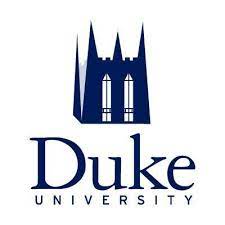
Durham, North Carolina
Duke’s highly selective admission policy applies to its Ph.D. in Pharmacology program, too, meaning applicants must be ready for a rigorous selection process. But the effort is worth it considering that Duke spends over $1 billion on its research projects every year and many of its faculty are among the most cited researchers. This means Ph.D. students can rely on a strong support system for their pharmacological sciences-based research.
- Only about 60 students are admitted into the program every year, with 47 faculty members working directly.
- All students receive financial aid that, along with small class sizes, allow them to focus on their studies and dissertation while receiving one-on-one mentorship.
- This full-time program (i.e., no part-time enrollment allowed) equates to a full-time job.
- The faculty’s current research studies include cellular signaling mechanisms, the ontogeny of signaling pathways, and rational drug design’s molecular basis. Many of these research projects invite Ph.D. students to participate.
- The program only accepts students during the fall term, with December 1 as the application deadline.
- Unofficial transcripts, undergraduate GPA, three letters of recommendation, statement of purpose, and resume are required application documents. The official transcripts will only be required upon acceptance into the program.
- GRE scores are optional, such as when the applicant believes that it will improve their chances of admission. A two-minute video essay discussing how the Duke Ph.D. education will lead toward professional success is also optional. (URL link must be provided)
Standout Features:
Students aren’t overburdened by didactic coursework as there’s only a small number of core courses in pharmacology that must be completed. The rest of the didactic instruction is directly related to their dissertation topic, which may be in biochemistry, molecular biology, and genetics.
Duke is particularly known for its exceptional strengths in cellular signaling mechanisms and receptor function concerning neuropharmacology, metabolism, and drug action.
Duke’s endowment may come from tobacco money, but smoking is completely banned in most areas on campus, such as in the medical center and within 10 feet of dining and residential buildings!
University of Mississippi

Jackson, Mississippi
Ole Miss is notable for its research on biomedical sciences, with its Ph.D. in Pharmacology faculty and students making significant contributions. Offered by the Department of Pharmacology and Toxicology, the program trains individuals for successful careers in pharmacology and toxicology. Graduates become teachers, researchers, and leaders in these fields, too.
- There are 19 faculty members in the department itself, and their expertise in pharmacology and toxicology is complemented by adjunct faculty from several other departments. Students then get multidisciplinary training that covers psychiatry, cancer, medicine, and emergency medicine.
- The faculty’s research interests from which students choose later on are as diverse as the departments. Current research projects are in signal transduction, drug metabolism, and cancer chemotherapy.
- Applicants are evaluated based on competitive standards. A bachelor’s degree in the sciences, letters of recommendation, and GRE scores are a few factors considered for admission. Proficiency in the basic sciences and English is also a basis for admission.
- Full-time students may receive financial assistance, including tuition scholarships and stipend support.
- Required courses include Recent Advances in Pharmacology and Toxicology, Pharmacology and Therapeutics, Mechanisms of Drug Action, and Fundamental Pharmacology.
- Elective courses are CNS Pharmacology, Molecular Toxicology, and Circulatory Pharmacology.
- The required research courses are Research in Pharmacology and Toxicology and Dissertation and Dissertation Research.
Standout Features:
Students hone their research skills through a combination of independent research and faculty-led research, both of which are characterized by their intensive demands.
Ole Miss one-upped Bama when it hired Sarah Isom, the Southeast’s first female professor.
Key Takeaways
- The pharmaceutical industry is a booming business, so now is a great time to begin your pharmacy education. A quality pharmacology or pharmacy program will get you started!
- Don’t forget… that although related – pharmacology and pharmacy differ… all with helpful patient care in mind.
- A Doctor of Pharmacy degree prepares students for the skills needed to excel in their career; often, graduates open their own pharmacy practice. Working in your community pharmacy is a great way to give back to your own neighborhood!
- Be sure your chosen pharmacology or pharmacy school is appropriately accredited.
- If you choose to become a pharmacist, the pharmacy college admissions test can be challenging, so be prepared!




